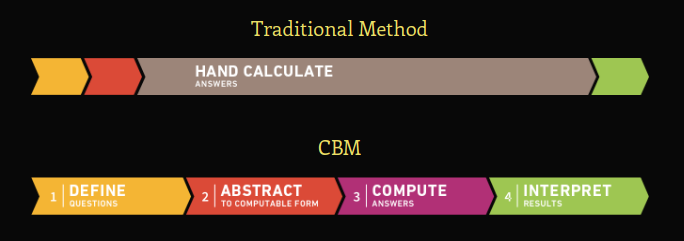I have been professionally tutoring a wide range of students (from elementary school through graduate school) for many years. Most of them are from the United States. I generally focus on helping my students develop procedural fluency built on a conceptual foundation (i.e. "now I can do the thing and I won't forget how to do the thing because I understand what it is and why it's useful"). I think that a conceptual understanding is very important but only because it serves a utilitarian purpose of helping students remember methods and feel empowered as they work. With this in mind, I happen to think that knowing how to add, subtract, multiply, and divide by hand is important. However, I am beginning to think that perhaps I am simply biased because of my upbringing, and that such things really aren't valuable anymore.
The vast majority of my students are younger than 20 years old, and the way they've been taught math is almost unrecognizable to me. Most of them have (for as long as I've known them) never taken a math or science test during which a calculator wasn't explicitly allowed. As a predictable result, they rely on their calculators to do all calculations. I suspect that most of them could rattle off some of the times tables if their life actually depended on it, but I've seen all of them type single digit multiplication and addition problems into their calculators. I know for a fact that many of them never learned the old trick for multiplying by 10 (you know, putting a zero at the end), and almost none of them know how to check for divisibility above 2. On top of that, my grade school and middle school students generally don't remember any method for conveniently adding, subtracting, or multiplying by hand. Some of them can multiply by drawing boxes or number lines, but the ones who can don't understand what they are doing.
For older students, we generally have bigger problems and more abstract topics to tackle, but for my youngest students (4th - 8th grade), I try to encourage them to develop a familiarity with the simplest forms of by-hand addition, subtraction, and multiplication (you know: one number on top of the other, carry the 2, etc.). While the methods are usually familiar to them, this sort of encouragement generally goes nowhere because their teachers don't care and because they always have either a dedicated calculator or their phone handy.
I tell students that calculators aren't always allowed (maybe that's not true anymore). I tell them that knowing is faster than typing it in (the difference is admittedly minimal). I remind them that different calculators have different syntaxes, so it's important to have a way to do it by hand if only to check the calculator (true, but not persuasive). I even joke that the world might end, and they'll need math when the electrical grid goes down (they remind me that their calculator has a little solar panel on it).
Truthfully, it's depressing, and what's worse, I'm not sure I'm convinced anymore either. I mean, I don't know any convenient algorithms for computing square roots or logarithms by hand but that never held me back.
So, to restate the question, is there actually any demonstrable, practical value in learning to add, subtract, multiply, and divide by hand (even if the reason might not be persuasive to a 10-year-old)?
